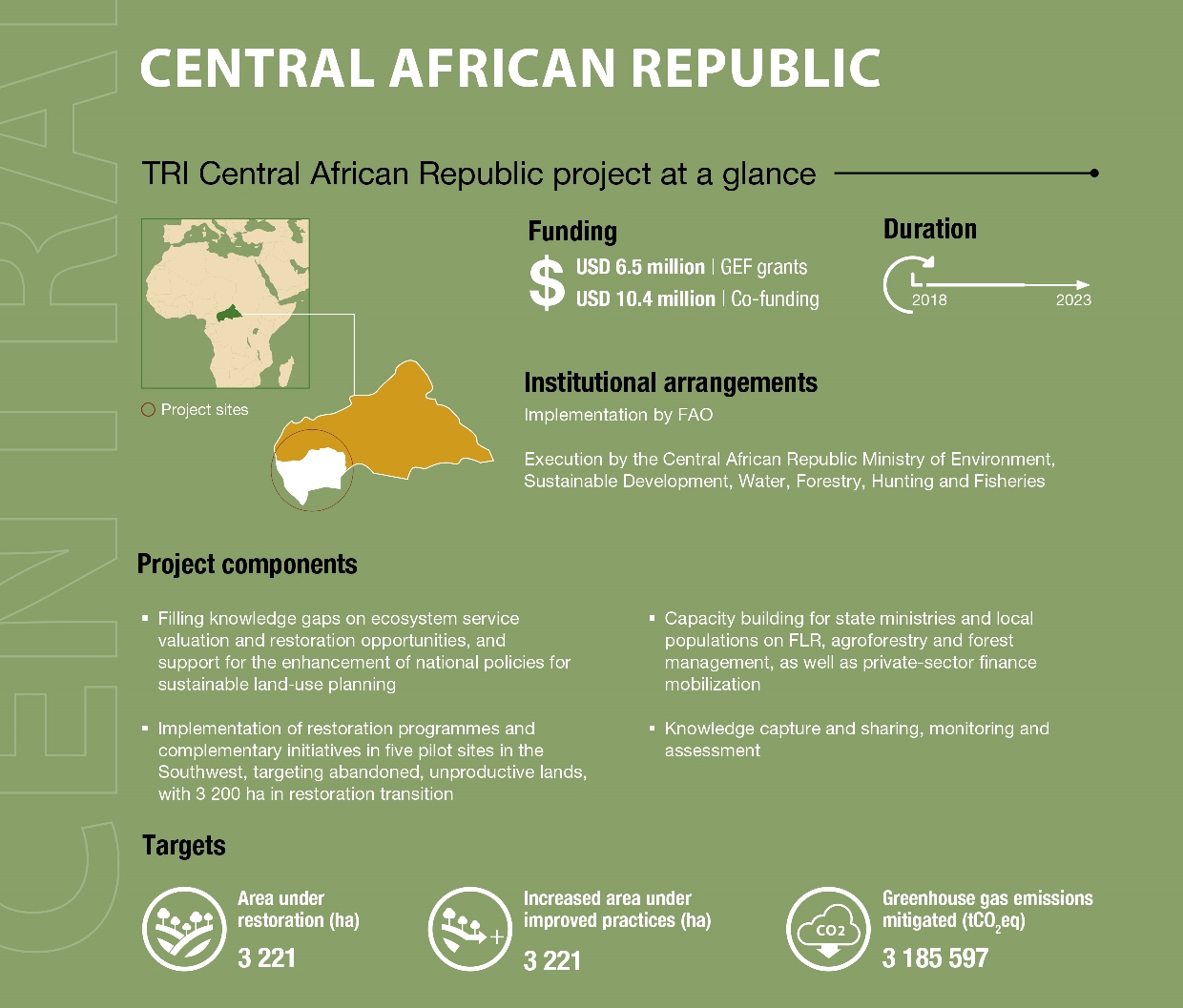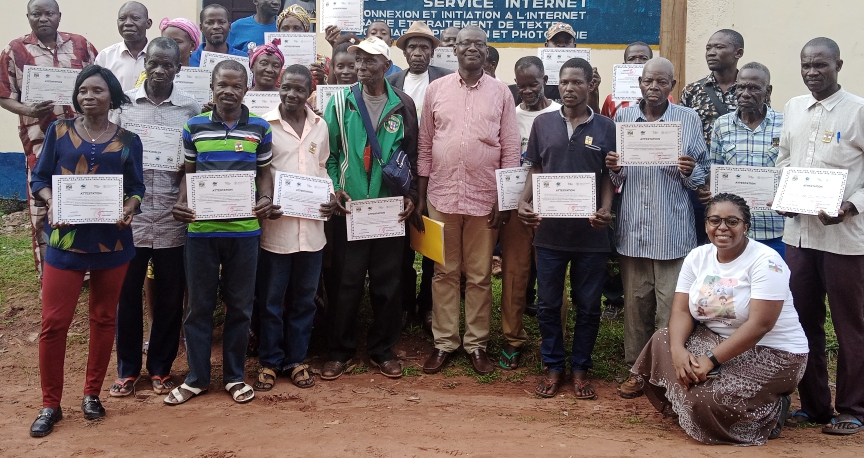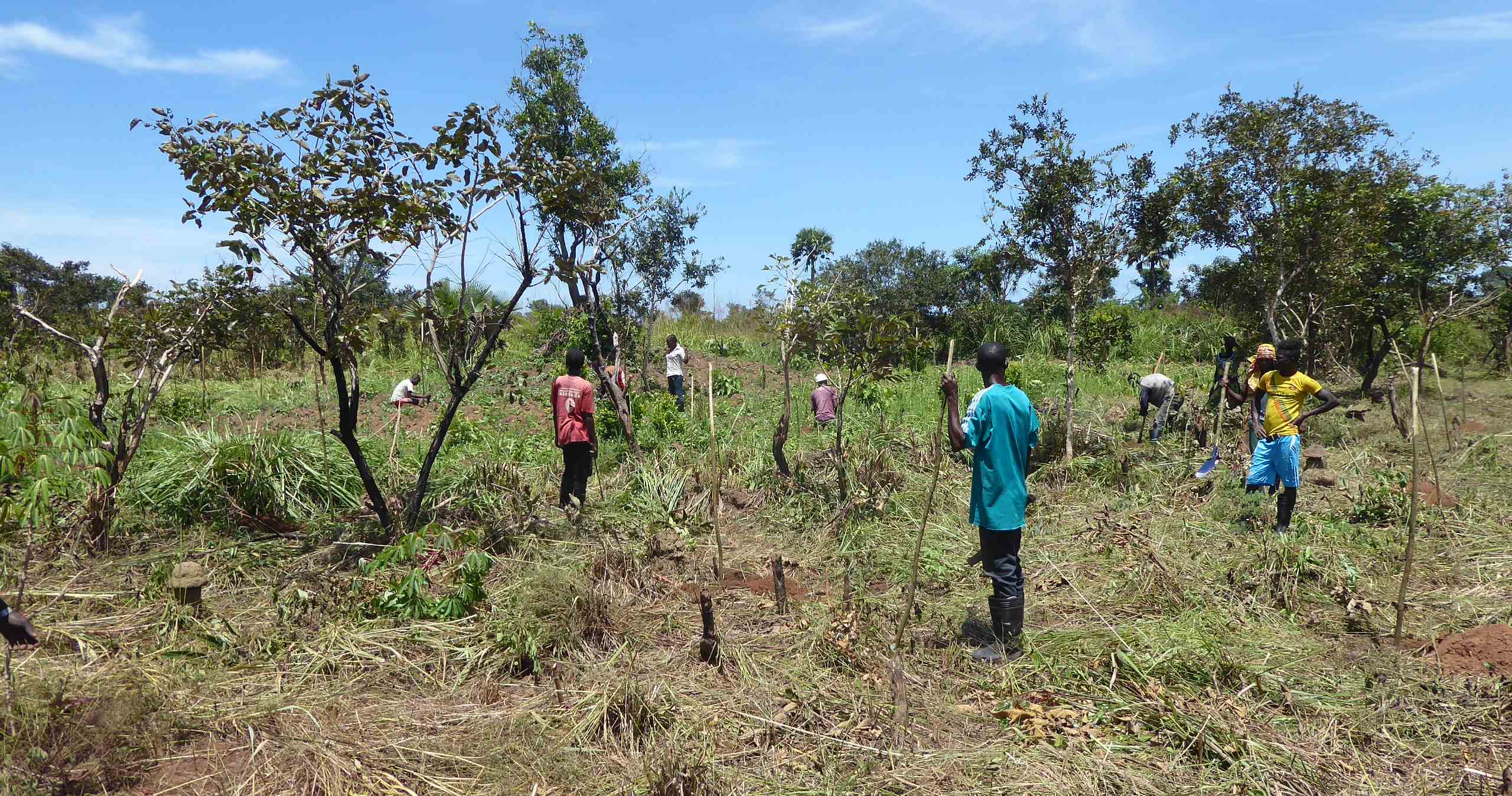The Central African Republic (CAR) is a landlocked, sparsely populated (just under five million inhabitants) country, which has suffered from numerous security conflicts over the past several decades and is among the ten poorest countries in the world. While the country once had the third largest area of rainforest cover in Africa, today forest cover is estimated to be 36%, with the densest, most intact forest cover remnants found in the southwestern provinces.
These southern provinces are increasingly threatened by unsustainable slash-and-burn agricultural practices and unsustainable timber exploitation. With little in the way of sustainable models for managing natural resources, TRI’s CAR project seeks to provide an alternative, piloting a wide-ranging set of interventions to restore degraded and abandoned lands at five sites in four southern provinces.
Piloted interventions include support for a public-private partnership between the government, a private company and local communities to restore degraded lands through the promotion of the best forest and agroforestry practices, as well as direct support to communities, providing incentives to restore abandoned, degraded lands in place of expansions through slash-and-burn agriculture. Other work will include mapping and characterizing the country’s remaining biodiversity, which includes forest elephants and lowland gorillas, to support conservation efforts.




